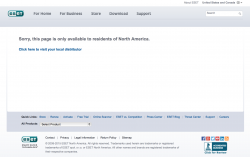There is no need to "outwit" anything. All OS X malware in the wild can be successfully avoided by practicing safe computing, and there is no additional protection that antivirus apps can offer beyond that. If you want to use them, as I said before, that's up to you. They are not needed to keep OS X 100% malware-free.
It`s not all about OS X, it`s about keeping the internet a safer place for all, something you clearly disregard. In this case there is no cost for altruism.
I don't depend on xProtect, either. Even without it, safe computing has successfully thwarted every OS X malware that ever existed in the wild.
Like it or not xProtect is watching your systems, and for good reason, If Apple thought all OS X users practised "safe computing" there would be no need for xProtect, most likely the typical user and Apple have a different opinion.
I'm not denigrating anything. I'm pointing out the facts that antivirus apps are flawed in their detection rates and do not guarantee protection against malware. Safe computing alone has proven to be more effective than antivirus apps in preventing OS X malware infections, and no antivirus app increases protection beyond that available through practicing safe computing. Therefore, while antivirus apps may be employed if the user desires, it is wise not to develop a false sense of security in such apps.
A flawed detection rate is better then zero detection. As stated your working under an assumption, you have no way to validate that your systems are free from OS X and or Windows malware. You assume your systems are free from malware based on your user habits, nothing more nothing less. AV is an additional security barrier like it or not. It costs nothing in time or productivity as long as you do some research, and it works...
Q-6



 -> System Preferences -> Flash/Java. This stops any fake updaters from going through.
-> System Preferences -> Flash/Java. This stops any fake updaters from going through.
